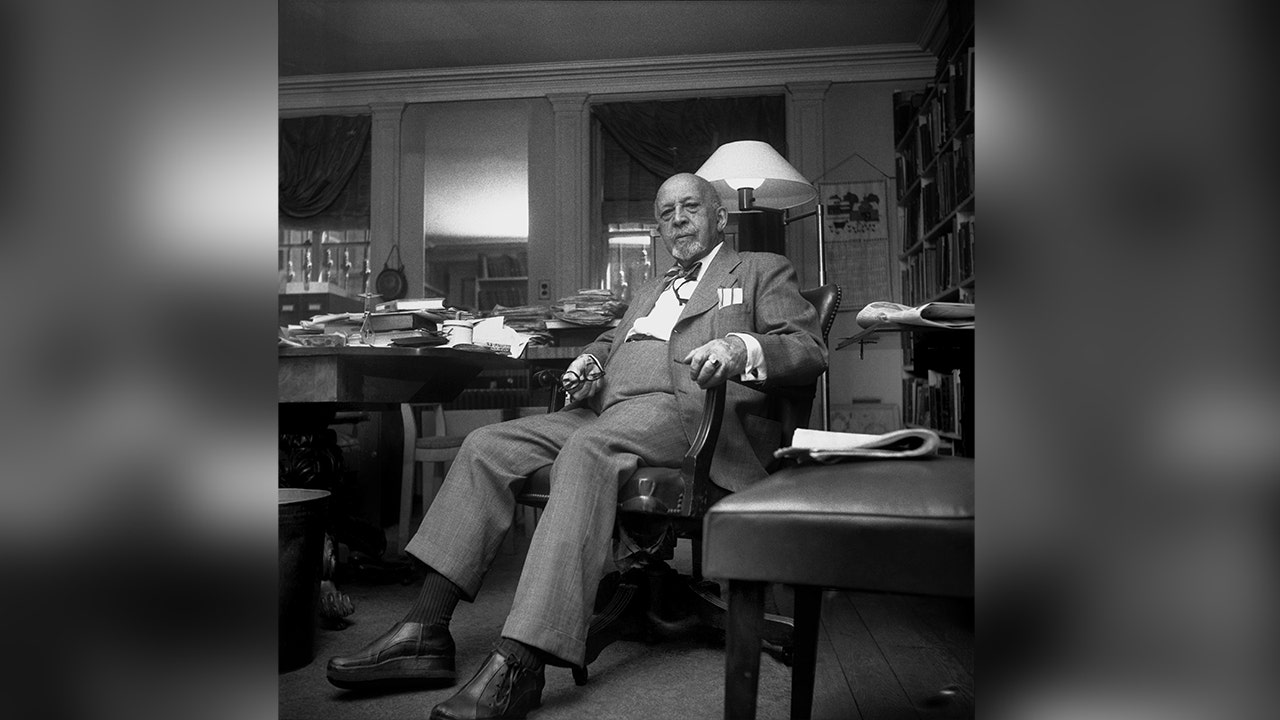On August 27, 1963, W.E.B. Du Bois, an influential American sociologist, author, activist, and co-founder of the NAACP, passed away at the age of 95 in Accra, Ghana. Britannica.com recognizes him as the most important Black protest leader in the United States during the first half of the 20th century.
Du Bois was born as William Edward Burghardt Du Bois in Great Barrington, Massachusetts, to Mary Silvina Burghardt, a domestic worker, and Alfred Du Bois, a barber and laborer. The Hutchins Center for African and African American Research at Harvard University provides this information. Du Bois had Bahamian slave ancestry and his father served as a private in a New York regiment of the Union army during the Civil War.
However, Du Bois’ father deserted the family shortly after his son’s birth, leaving him to be raised by his mother and the extended Burghardt kin. A photograph of W.E.B. Du Bois seated at his desk accompanies this information.
During his upbringing in Massachusetts under the care of his mother and family, Du Bois attended a racially integrated high school in Great Barrington where he received a college preparatory education. He became the first African American graduate in June 1884, according to the Hutchins Center for African and African American Research at Harvard University.
In 1888, Du Bois enrolled at Harvard University as a junior, although he had previously attended Fisk University in Tennessee. He obtained his BA cum laude in 1890, an MA in 1891, and a PhD in 1895. He holds the distinction of being the first Black American to earn a PhD from Harvard University.
Du Bois played a significant role in the establishment of the NAACP in 1909 and served as the editor of its magazine, The Crisis, from 1910 to 1934. He was also known for his opposition to Booker T. Washington’s “Atlanta Compromise,” which prioritized vocational education over social advantages for Black people. Du Bois strongly believed in demanding full equality for African Americans as granted by the 14th Amendment.
In addition to his activism, Du Bois was a prolific writer, sociologist, and historian. His work “The Souls of Black Folk” (1903) is considered a landmark of African American literature. He conducted a groundbreaking study titled “The Philadelphia Negro” in 1896, which utilized statistical research and extensive fieldwork.
Later in his life, Du Bois moved to Ghana and became a citizen of the country in 1961. He embarked on a project to create a new encyclopedia of the African diaspora, which was funded by the Ghanaian government. Unfortunately, Du Bois passed away in Ghana on August 27, 1963, at the age of 95, the day before the historic March on Washington for Jobs and Freedom.
W.E.B. Du Bois left an indelible mark on the civil rights movement and is remembered as a visionary leader who fought tirelessly for racial equality. The NAACP, which he co-founded, continues to advocate for the elimination of racial discrimination through democratic processes.
Denial of responsibility! VigourTimes is an automatic aggregator of Global media. In each content, the hyperlink to the primary source is specified. All trademarks belong to their rightful owners, and all materials to their authors. For any complaint, please reach us at – [email protected]. We will take necessary action within 24 hours.


